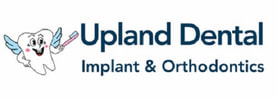- Home
-
Doctors
- William Hung, DDS: Dental Implant Specialist
- Emily Hung, DDS, MS: Orthodontist
- Amanda Budiman, DDS: Orthodontist
- Wesley Hung, DDS: Dentist
- Kelly Lee, DDS: Dentist
- Trang Do, DDS: Dentist
- Tina Sun, DDS: Periodontist
- Nischit Shah, DDS MSD: Periodontist
- Kathryn Le, DDS: Anesthesiologist
- Ian Woo, DDS, MD: Oral Surgeon
-
Our Services
- Blog
- Need a New Dentist?
- Contact
- Locations
|
Cavities and tooth decay occur when a tooth is damaged from the food and drinks you consume over time. The tooth has two layers, enamel (the outer layer) and dentin (the inner layer). The bacteria in your mouth consume the sugars that are present in the food and drinks you take in each day. Then they turn them into acids. The mixture of bacteria, acid, food and the saliva in your mouth form plaque which will stick to your teeth and demineralize your teeth. After a while, they start to form holes which we call cavities or decay.
What kind of foods make you more prone to cavities?
How do I tell if I have a cavity? The cavity exposes the nerves of your teeth to the environment in your mouth. So sometimes when you eat or drink something sweet, hot or cold, you will have sensitivity or even a toothache. Sometimes you can see pits or holes in your teeth and sometimes those areas can discolor. Dentists will check during your exam and look for soft spots to see if decay has started to occur or use xrays to check for decay. How to prevent cavities? Now we know that the food and drinks we consume cause the bacteria in our mouths to release the acid that causes tooth decay. We also know the way to prevent cavities from forming. Brushing and flossing! Brushing with a fluoride toothpaste will remove the food and bacteria from your mouth. The fluoride in your toothpaste will help remineralize and strengthen the enamel layer on your teeth. It is important to brush after meals and I recommend the best is to brush after every meal. So food is not left on your teeth for too many hours at a time. Bringing a toothbrush to work or school is a great way to get that extra brushing session after lunches. For younger kids that may not be able to brush at school. Brushing right after they get home from school is great to get those teeth clean in the middle of the day. Now to talk about flossing. Sometimes it is hard to reach the food in between our teeth. So that is why flossing is important to remove the food and plaque that we cannot reach with toothbrushing alone and prevent cavities from forming in between our teeth. Over the counter fluoride at home such as ACT rinses are a great way to add that extra layer of protection to our teeth. I always recommend to use it at bedtime after teeth have been brushed and flossed. Just rinse for one minute, spit it out and do not rinse with water. Let the fluoride rinse coat your teeth. And of course, come see your dentist twice a year. We make sure to look for any possible cavities your might have and early detection can give you a chance to try to reverse those tiny cavities, or if the cavity has progressed, the dentist can fix your decay and help prevent losing the tooth. During your check up, we also give you a cleaning, to remove any plaque or calculus that you might have missed at home. Proudly serving the areas near Upland, Rancho Cucamonga, Chino and Wildomar.
3 Comments
4/23/2021 04:02:34 am
Such an amazing blog, I love reading all your blogs. They are super amazing and informative at the same time. Bookmarked your page already, keep posting more.
Reply
12/17/2021 09:00:49 pm
It was nice reading this blog post! It's very informative. Dental sealants are a method of preventive dentistry that protects teeth against decay. Sealants are plastic coatings that are applied to the chewing surfaces of the back teeth. Sealants operate as a barrier between the tooth surfaces and keep food out of these areas.
Reply
1/1/2023 05:58:06 pm
Tooth decay and cavities can be prevented by brushing and flossing your teeth twice a day, avoiding sugary snacks and drinks, visiting the dentist regularly for checkups and cleanings, and eating a nutritious diet. Additionally, special care should be taken in the case of children to ensure they are taking precautions to prevent tooth decay and cavities. With proper dental hygiene habits, you can keep your teeth healthy for life.
Reply
Leave a Reply. |
Archives
August 2021
Categories
All
|
|
Upland Dental Implant and Orthodontics
LocationsUpland - 1268 W. Foothill Blvd Upland, CA 91786 (909) 981-4111
Rancho Cucamonga - 11328 Kenyon Way Rancho Cucamonga, CA 91701 (909) 945-5800 Chino - 14335 Pipeline Ave #A Chino, CA 91710 (909) 902-0800 Wildomar - 34859 Frederick St Suite 106 WIldomar, CA 92595 (951) 678-9888 |
Services
|
© 2022 Upland Dental Implant & Orthodontics
- Home
-
Doctors
- William Hung, DDS: Dental Implant Specialist
- Emily Hung, DDS, MS: Orthodontist
- Amanda Budiman, DDS: Orthodontist
- Wesley Hung, DDS: Dentist
- Kelly Lee, DDS: Dentist
- Trang Do, DDS: Dentist
- Tina Sun, DDS: Periodontist
- Nischit Shah, DDS MSD: Periodontist
- Kathryn Le, DDS: Anesthesiologist
- Ian Woo, DDS, MD: Oral Surgeon
-
Our Services
- Blog
- Need a New Dentist?
- Contact
- Locations

 RSS Feed
RSS Feed